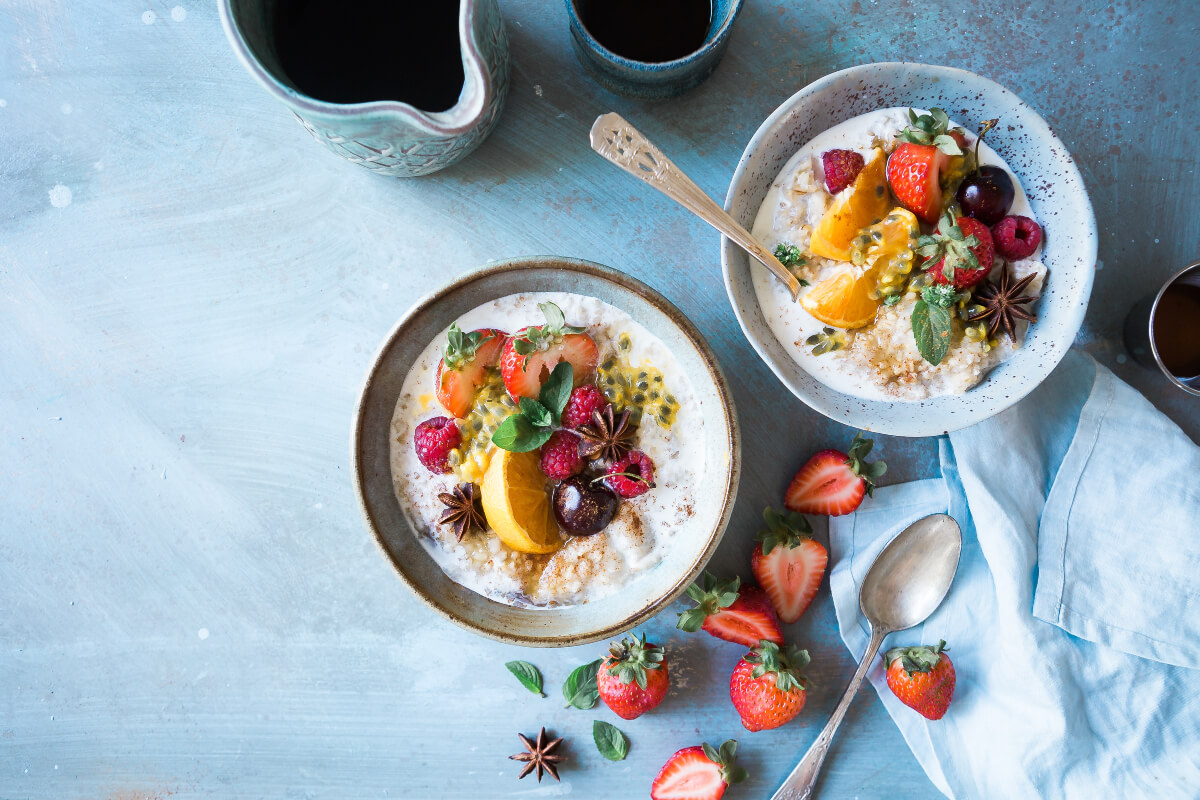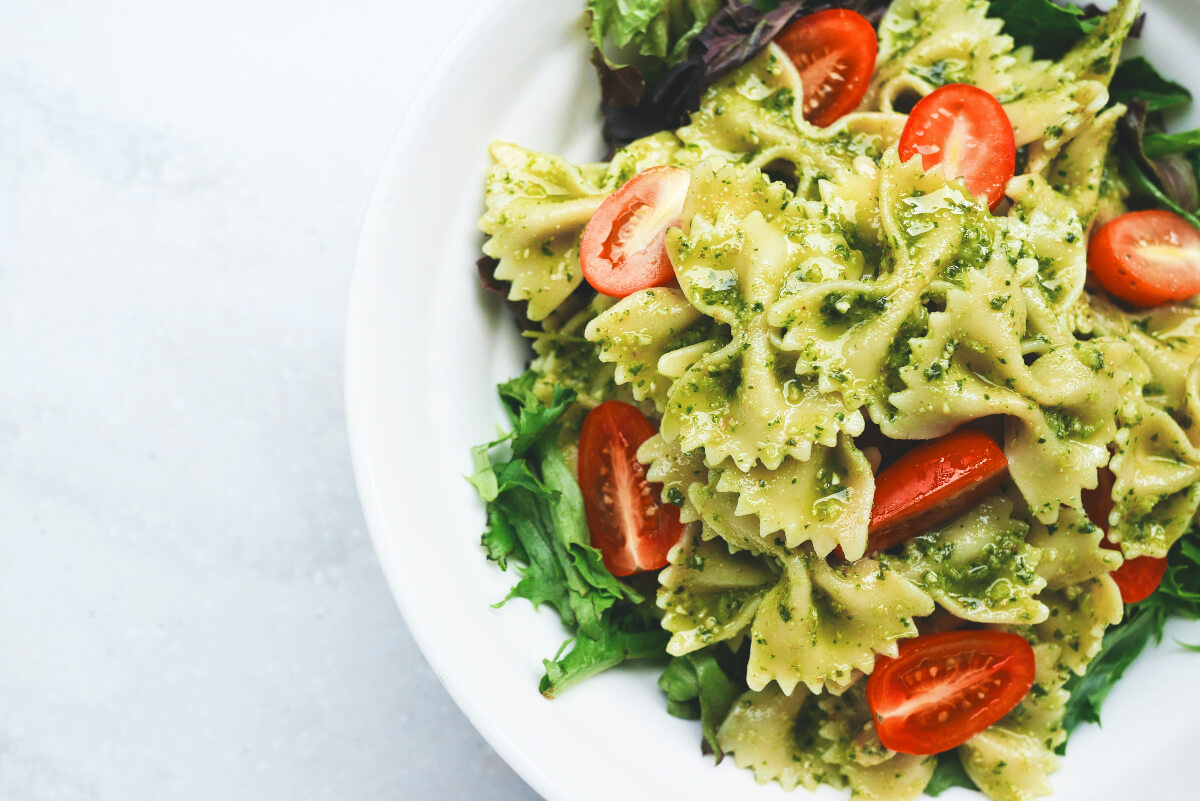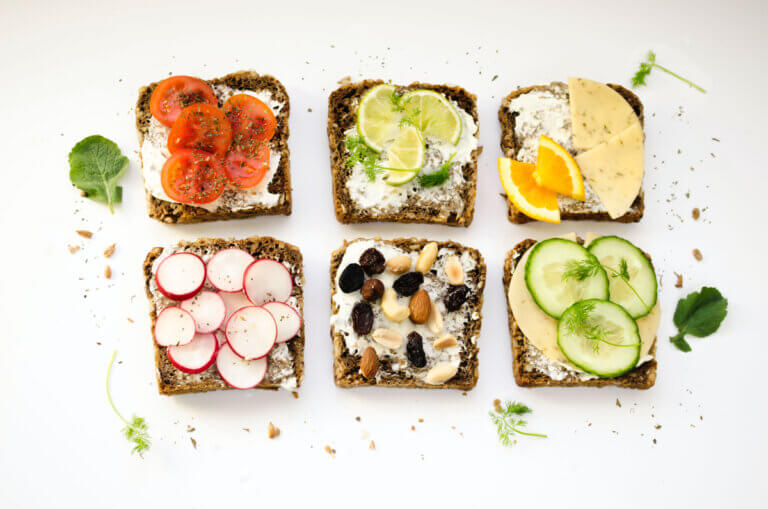Living a healthy lifestyle doesn’t have to mean giving up on the things that bring you joy or adopting a restrictive mindset. There are plenty of tips, tricks and hacks you can try to design meals and healthy snacks that will make you feel your best in every way. We’ve asked Registered Dietitian Lyndsay Hall for her tips on easing into a healthy eating lifestyle without sacrificing on flavor.
To ensure that lifestyle changes are sustainable, it’s important to retain some of life’s pleasure, and this includes food.
Completely cutting out our favorite foods from daily consumption will simply and inevitably lead to feelings of deprivation and dissatisfaction, often leading to indulgences and the abandonment of a lifestyle change.
How to Ease Into Healthy Eating – In a Way That Works for You
Below are some tips for easing into a healthy eating lifestyle without sacrificing on flavor.
1. Take It Slow When Introducing Healthy Eating

To avoid this pitfall, the trick is twofold. One, make the changes gradual. That is, do not change a dozen things at once or cut out a large number of foods at the same time. Instead, make two or three changes. That’s doable, not drastic. Once these changes take effect and are a firmly embedded habit, proceed to make more changes. And two, rather than eliminating a flavorful but less-than-healthy food, try reducing its portion. This way, you still get the pleasure from your favorite flavors without going overboard.
I also recommend seeking the help of a professional who can suggest healthier substitutions for our favorite products. Doing so has become much easier in recent years as healthier versions of traditional food products are popping up at supermarkets everywhere.
2. Take Care of Your Mental Health

Related Articles
Surround yourself with people who are supportive of your goals. Mindfulness also plays a pivotal role. It can be very beneficial to get in the habit of checking in with yourself at meal and snack times. For example, asking yourself, ‘Am I eating because I am: hungry, stressed, sad, happy?’ can help you discern between true hunger and mindless eating. The steps we can take here are many and varied.
3. Make It Easy to Eat Healthy

The hardest part of adopting lifestyle changes is breaking old habits and developing new ones. This includes cooking and prepping. It’s important to make things as convenient, simple and practical as possible, given your specific situation (food preferences, dietary conditions, lifestyle, budget, religious and cultural restrictions). There is no one all-encompassing way. Again, it’s about personalization.
Before cooking and prepping, it’s important to keep some fundamentals in mind. Knowing about portion sizes, the balanced-plate model, macronutrients and so on can go a long way in starting you on the path to healthful cooking and eating.
Then there are more general, practical healthy eating tips that can be incorporated by just about anyone:
- Include protein at every meal to stave off hunger, amongst its many other benefits
- Batch cook to have meal staples readily available, especially when things become hectic during the week
- Keep many healthy snack options on hand and within easy reach
- Include all family members in the meal-making process, even to a slight degree
4. Focus On What’s Best for You

Dieting is hardly sustainable in the long-term. Hence the terms on-and-off dieting and yo-yo-dieting. Adopting all principles of a diet framework that has worked for someone else is a recipe for failure. We are all made differently, with different dispositions, inclinations and proclivities. As a result, whatever eating framework, for lack of a better term, we undertake should be structured according to our own individualized needs, preferences, dietary conditions and goals.
That said, it’s important to be informed about nutrition, adopting a “diet” that is wholesome and nutritionally balanced. This takes self-awareness, mindfulness and a concerted, sustained effort, at times. It is important to eat according to when and how you feel without neglecting our health. In fact, we should eat when and how we feel while promoting our health. Essentially, it’s striking a balance.
Cheers to living a healthy lifestyle 🥂!







